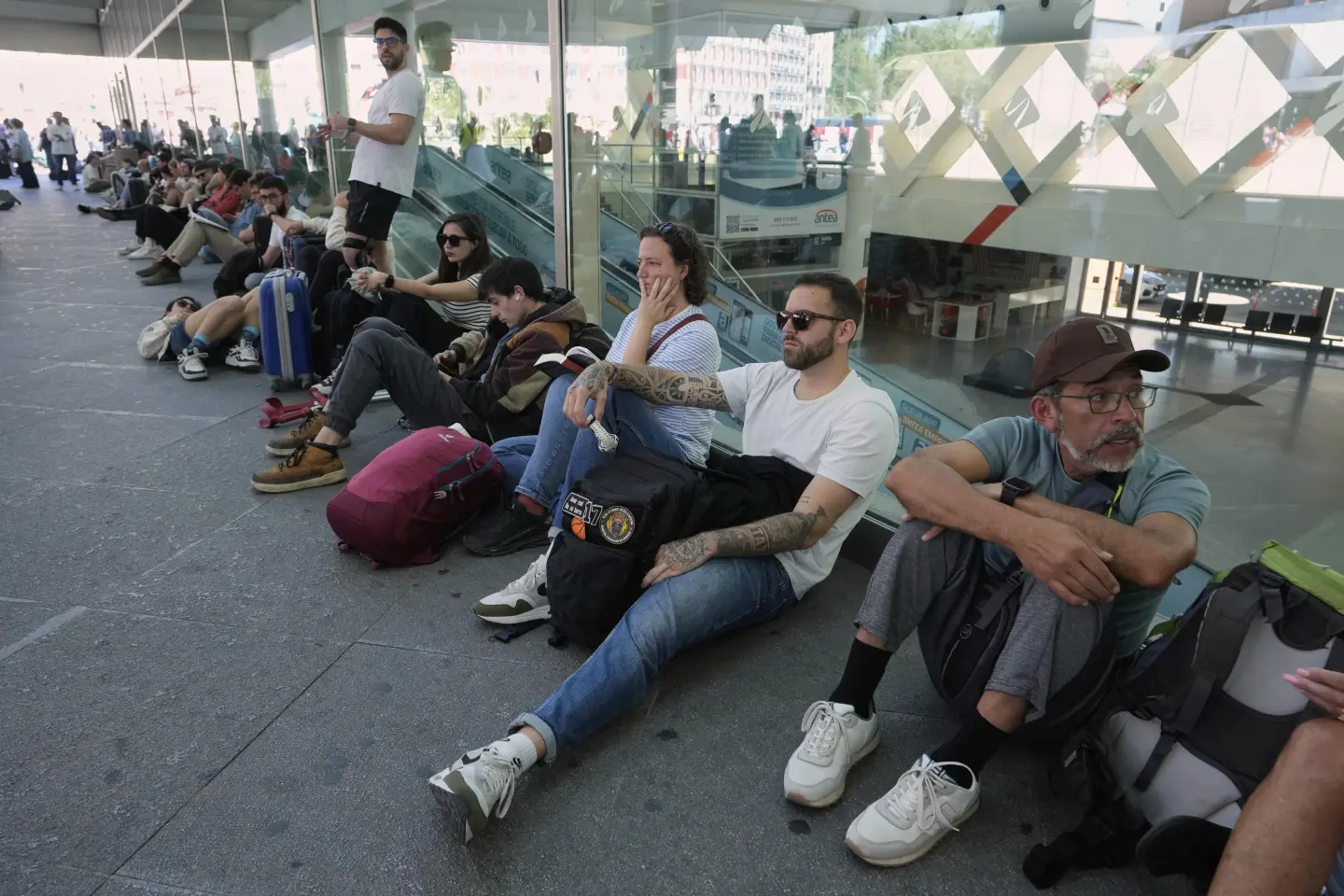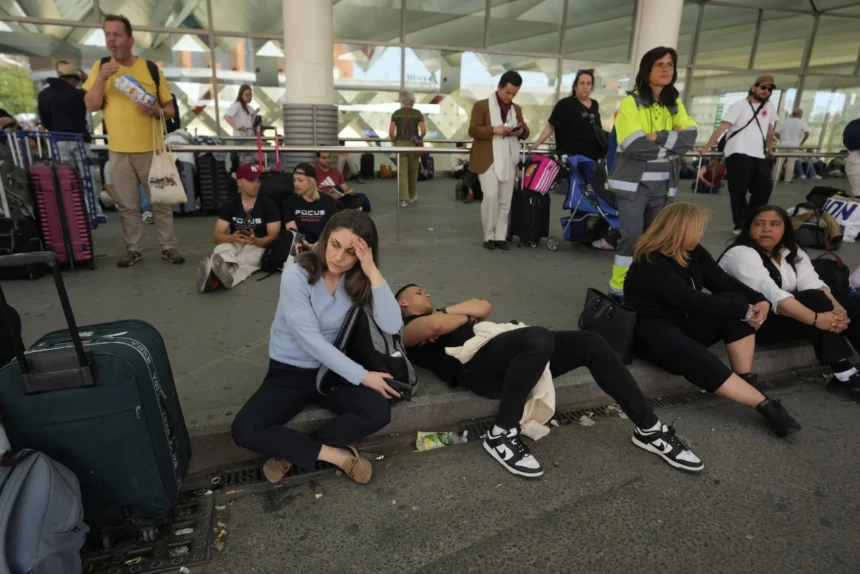A massive power failure left millions without electricity across Spain, Portugal, and parts of France on Monday, causing confusion and major delays. The head of Eurelectric, a European power industry group, said a failure with the power link between France and Spain played a role.
An unprecedented blackout brought much of Spain and Portugal to a standstill Monday, stranding thousands of train passengers and leaving millions of people without phone and internet coverage and access to cash from ATMS.
Kristian Ruby explained that a “specific incident with an interconnector” separated Spain’s grid from the wider European system. He also mentioned that other issues likely contributed to the blackout.
Throughout the day, train services were cancelled or delayed, traffic signals stopped working, and airports struggled with backups. By Monday evening, Spain’s Transport Minister, Oscar Puente, reported that 11 trains were still stuck. Cities plunged into darkness, some people became trapped in elevators, and restoring power was expected to take hours.
By nightfall, half of Spain’s power had returned, according to Prime Minister Pedro Sánchez. In Portugal, energy provider REN reported that electricity was back to 750,000 customers. However, a state of emergency remained, allowing local governments to request special help.
Officials continued to investigate the cause, stressing that it was too soon to jump to conclusions. Portuguese Prime Minister Luís Montenegro said there were no signs of a cyberattack.

Timeline of the Blackout
The outage began around noon local time on Monday. The effects escalated quickly, with Madrid officials urging people to stay home and keep emergency calls to real needs only.
Spanish authorities estimated that it could take up to 10 hours to restore power. REN in Portugal said full recovery might take up to a week.
ATMS stopped working, card payments failed, and some gas stations closed. The blackout caused chaos on Madrid’s metro, leaving commuters in the dark and sparking panic. Sarah Jovovich, a resident, described confusion and fear underground, and said mobile phones stopped working.
Above ground, traffic jams formed as signals failed. Businesses shut their doors, and buses filled up fast. Emergency crews had to rescue hundreds trapped in elevators across Madrid. Some hospitals switched to emergency plans and paused routine operations.
By the evening, power was coming back in parts of Spain, with the grid operator confirming progress in the north, south, and west.
Spanish and Portuguese authorities continued to search for answers. European Council President Antonio Costa said there was still no evidence of a cyberattack.
Madrid’s mayor urged residents to limit movement and keep roads clear. He advised calling emergency services only for real emergencies. If calls went unanswered, he recommended heading to police or fire stations in person.

What Happened Across Spain and Portugal
Spain’s nuclear plants shut down automatically when the blackout hit. Oil company Moeve also stopped operations at its refineries. Many trains were stranded in remote areas because of power loss, and coupling locomotives proved difficult, according to Transport Minister Puente.
Gabriela Chavez, a train passenger, said she and others were let off in the middle of nowhere. Local people brought water and snacks to help, but there was little information about when travel would resume.
The blackout also disrupted flights, with cancellations and delays at Lisbon and Madrid airports. EasyJet reported ongoing issues and told travellers to check for updates. Cirium, an aviation data firm, counted 96 cancelled flights from Portugal and 45 from Spain by Monday evening.
Businesses suffered as well. Some Ikea stores in Spain used backup generators and stopped letting in customers. The Madrid Open Tennis tournament was cancelled for the day.
Some regions in France and Andorra also lost power, but the Balearic and Canary Islands were not affected.
Officials in both Spain and Portugal continued to investigate the cause of the outage late Monday. The exact reason remains unclear.
Related News:
Spain’s Golden Visa Program Comes to an End

Geoff Thomas is an award winning journalist known for his sharp insights and no-nonsense reporting style. Over the years he has worked for Reuters and the Canadian Press covering everything from political scandals to human interest stories. He brings a clear and direct approach to his work.












